In a small African country battling poverty and starvation, land, farming and corruption remain key issues in Malawi’s politics.
Malawi – nicknamed “the Warm Heart of Africa” for the kindness of its people – is one of the poorest countries in the world. A small, landlocked country in southeastern Africa, over half of its almost 20 million people live under the poverty line. Ongoing food crises, often the result of extensive drought or devastating floods, have plagued the country for decades. Heavily reliant on foreign aid, in 2014, Malawi ranked as the world’s fifth most aid-dependent country or territory.
After Malawi won its independence from Britain in 1964, it eventually transitioned from a one-party dictatorship to a democratic system in the early 1990s. Democracy now thrives. This year 74% of the population turned out for presidential elections on May 21st.
By a slim margin voters returned incumbent President Peter Mutharika, head of the Democratic Progressive Party (DPP), for another five year term. Mutharika and the DPP took 38% of the vote, former evangelist Lazarus Chakwera of the Malawi Congress Party (MCP) came in second with 35%, and Saulos Chilima (UTM) took 20%.
Yet, despite robust voter turnout, Malawi’s democratic elections are facing challenges by two of its losing parties.
![A man casts his vote, with long lines behind him, at Masasa Primary School polling station in Mzuzu on May 21, 2019. (Patrick Meinhardt)]](https://limacharlienews.com/wp-content/uploads/2019/06/Malawi-election-01.png)
“Daylight Robbery”
After opposition parties unsuccessfully challenged the election in Malawi’s High Court last week claiming it was rigged, President Mutharika was sworn in for another 5 year term. On May 28, Mutharika took the oath of office before a capacity crowd at Kamzu Stadium, in the city of Blantyre.
“Whether you voted at all or not voted. Whether you voted for us or not for us. I am your President. I am the President of all Malawians. And Malawi is our country,” said Mutharika. “We cannot deny our history. Each political party played a fundamental role in the history of this nation. Now it is our call to develop this country. Let us remain focused on development and changing lives for the better.” Mutharika added, “As we say in our local language – nkhondo simanga mudzi. We cannot build this country with violence and bloodshed.”
https://twitter.com/MalawiGovt/status/1133358895248887808
This Tuesday however, protesters, led by Chakwera, stormed the offices of the president and government buildings demanding that Mutharika resign chanting anti-Mutharika slogans. Chakwera has called the election outcome “daylight robbery”.
“We are shutting down Capital Hill to show this illegal government that the people are in charge and not Mutharika,” MCP youth director Chimwendo Banda told Reuters. Mutharika, 78, a former law professor, won against Chakwera by 159,000 votes.
Also on Tuesday, Malawi’s High Court ruled that the petitions of the MCP and Chilima’s UTM party seeking to have the election results nullified can be consolidated. The petitions cited a number of alleged irregularities such as ballot stuffing, tampering with election sheets with a correction fluid (Tippex), as well as officials being caught with result sheets at home.
Hundreds of Malawi Congress Party supporters are demonstrating in Blantyre against results of the May 21 elections.
MCP's Director of Campaign Moses Kunkuyu said the party's supporters are basically moaning and can moan anywhere @bnltimes @DecideYouth @MalawiPage pic.twitter.com/WLlKv3nivV— Jameson Chauluka (@ChaulukaJameson) June 4, 2019
2 Presidential election candidates in Malawi have filed cases challenging the recent election results which saw President Mutharika declared winner.
Court today said both petitions will be consolidated as one case. pic.twitter.com/icLdVS0Ipx— Samira Sawlani (@samirasawlani) June 4, 2019
MCP supporters are now at Capital Hill where there is heavy Police Presence.
Reported by Faith Kadzanja, @FKamtambe#TimesNews #MCPMarch pic.twitter.com/vAYAB75ccX
— Times 360 Malawi (@Times360Malawi) June 4, 2019
Malawi maintains a close military and security collaboration with the United States. In 2016, the U.S. opened the Office of Security Cooperation (OSC) in Malawi’s capital, Lilongwe. With U.S. Africa Command (AFRICOM), the United States supports peacekeeping, training and equipment, multilateral exercises and conferences with the Malawi Defense Force (MDF) and Malawi law enforcement. The MDF, which originated from British colonial units formed before Malawi’s independence, became active in peacekeeping soon after the Rwandan genocide in 1994. Along with Tanzania and South Africa, it makes up the United Nations Force Intervention Brigade (UNFIB).
The United Kingdom, having an historic presence in Malawi, continues to provide military assistance and training to the country, including in the protection of some of the world’s most endangered species, that includes elephants, rhinoceroses and lions. Operation Corded, the name given to the UK Army’s counter-poaching deployment in Malawi, assists in the training of park rangers to crack down on the illegal wildlife trade. According to the BBC, about 30,000 elephants are illegally killed every year in Africa, with only about 450,000 elephants left. “In many places it has become literally a war against poachers – that’s why rangers are trained by British troops.” British soldiers, primarily the Coldstream Guards, have been deployed in Malawi’s Liwonde, Nkhotakota and Majete Wildlife Reserves.
Malawi’s Hot Topics: Food, Land and Corruption
Peacekeeping and poaching, while news in Malawi, were not issues of debate in #MalawiElections2019. The issues largely focused on were that of food, land and corruption. And for good reason.
In spite of having an overwhelmingly agricultural economy, with 80% of the population working smallholder farms, access to food is still a major struggle. 47% of children in Malawi are stunted from malnutrition. The nation is also subject to regular and devastating droughts, including one which has spanned over the last 2 years. When rain does come, the resulting flooding can further disrupt food production.
This March 2019, Malawi was struck by Cyclone Idai, one of the worst tropical cyclones on record to affect Africa and the southern hemisphere. Idai left more than 1,000 people dead and thousands more missing. Maize is a staple food in Malawi. After the catastrophic floods created by the cyclone, Malawi’s Agriculture Minister Joseph Mwanamvekha announced that the country may have lost 20% of the maize it would produce this season. (#MalawiFloods2019)
News: UK commits additional £1.6m for Malawi #Cyclone Idai victims’ early recovery.https://t.co/bvCVVggeHB pic.twitter.com/BTl2Kyd9zn
— UK in Malawi (@UKinMalawi) May 20, 2019
Malawi’s industrial agriculture is dominated by inedible cash crops. Tobacco constitutes an overwhelming 71% of exports. A further 10% is tea. Malawi is also known for growing “the best and finest” chamba (cannabis) in the world. The sale of “Malawi Gold” is considered by some to be a possible solution to the country’s economic woes and an answer to the steadily declining tobacco market.
Declining tobacco consumption in wealthy western countries has been undercutting tobacco prices. Malawi’s tobacco supply chain is dominated by a small number of large multinational corporations and many farmers are dependent on the tobacco leaf buyers for their farming equipment, which means that small farmers are relatively powerless to drive up prices.
“Most farmers used the land that was cultivating food crops for tobacco hoping that they would be able to purchase food from the market,” Dr. Milu Muyanga told Lima Charlie World. Dr. Muyanga, a faculty member at the Department of Agricultural, Food, and Resource Economics at Michigan State University said that tobacco prices have not always been reliable, “but more critically the food markets have been problematic hence promoting widespread food insecurity.”
Michigan State University recently received a $7.8 million grant from the Agricultural Transformation Initiative (ATI) to develop policy to improve the lives of Malawi’s smallholder farmers. The ATI is a core mission of the Foundation for a Smoke-Free World, a U.S. nonprofit with the goal of improving global health “by ending smoking in this generation” and by supporting the diversification of tobacco-dependent economies.
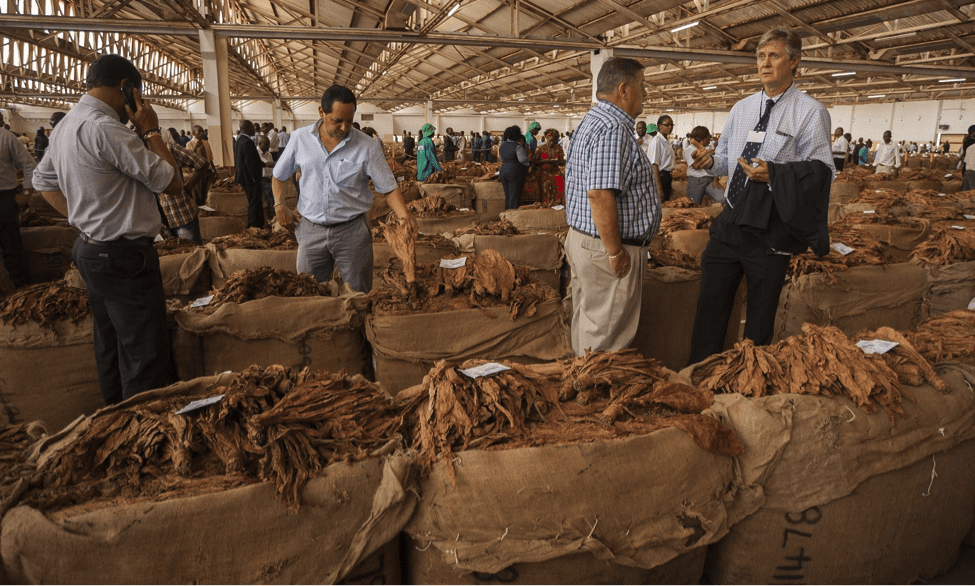
Land Reform Fail
Another prominent roadblock Mutharika fended off is a controversial 2016 land reform bill.
“The major issue that made the 2016 land reforms unpopular were the provisions that aim to remove the governance and administration of land from the realm of traditional leaders,” Dr. Muyanga told Lima Charlie. The reforms to land tenure (property rights to land in Malawi) enabled consolidation of land away from smallholders. “The proposed tenure system, though intended to create a vibrant land market, somehow makes the acquisition of land from the poor smallholders by the rich elites and foreigners very easy.”
The apportionment of land is a critical issue in Malawi, especially because the initial colonial settlers in the country were British farmers who established the tobacco and tea export industry that persists to this day. The consolidation of land into estates places the country’s primary export industry into direct competition for land with the country’s primary source of employment, the smallholder farms. Even as 1.8-2.6% of Malawi’s forests disappear annually, opening up land in an environmentally unsustainable way, Malawian farmers still struggle to find land.
“Land sizes are shrinking and now stand at about 0.33ha per household,” said Dr. Muyanga. “The land question remains a very sensitive issue, not only in Malawi but in sub-Saharan Africa in general.”
The question of land availability in the arid southern portion of the African continent has been critical across the region, be it the role of redistribution of farmland in the rise of Zimbabwean Dictator Robert Mugabe or the current growing popularity of the Economic Freedom Fighters in South Africa.
The controversial advocacy group, the People’s Land Organisation (PLO), or People’s Land Party, and its Supreme Leader Vincent Wandale attempted a radical appeal in Malawi on the land issue. With an aim to “take back all the land under estate ownership which was lawlessly grabbed from our grandfathers during the colonial period”, the PLO suffered a setback when Wandale was ordered to a psychiatric facility for treatment.
“Wandale was by no means insane as he was described, because all he wanted was to address the problem of land, which the estates had apportioned themselves while the majority had nowhere to build and cultivate,” said MCP candidate Chakwera at a campaign rally. The MCP has angled to return to power, having ruled shortly after independence from 1966 to the establishment of free elections in 1993.
Corruption and Mismanagement
Malawi is the 120 least corrupt nation out of 175 countries, according to the 2018 Corruption Perceptions Index reported by Transparency International. According to the report, the Malawi corruption rank averaged around 90.81 from 1998 until 2018, reaching an all time high of 122 in 2017.
In 1995, soon after emerging from the 30 year absolute rule of “president-for-life” Hastings Banda, Malawi had created the Anti-Corruption Bureau (ACB) and launched a comprehensive Corrupt Practices Act. Regardless, corruption continued to such an extent that it led to the withdrawal of international support. A major scandal uncovered in 2013, known as the “Cashgate Scandal”, included a British audit showing that 16 Malawian companies had received an estimated US $32 million in illicit payments from the government for goods and services that were never delivered or performed. More than 70 people were arrested, many of whom were subsequently tried and convicted, and President Joyce Banda fired her entire cabinet. In 2017 police issued a warrant for Banda’s arrest. After returning to Malawi from self-imposed exile in the U.S., Banda ran for president in the 2019 election, before withdrawing in March, endorsing Chakwera.
According to a 2014 Transparency International report, “The progress in the fight against corruption … seems to have stagnated: petty and grand corruption are commonplace and the high levels of patronage, nepotism and clientelism constitute a hurdle to the proper functioning of the anti-corruption framework.” Malawi has ratified the UN Convention against Corruption but is not a signatory to the OECD Anti-Bribery Convention.
In 2002, while Malawi was in the midst of a devastating famine, a cabinet member was implicated in the illegal sale of the nation’s emergency maize reserves to Kenya. The party emblem of the Democratic Progressive Party (DPP), which rose to power in the aftermath of the 2002-2005 food shortage, is emblazoned with images of maize.
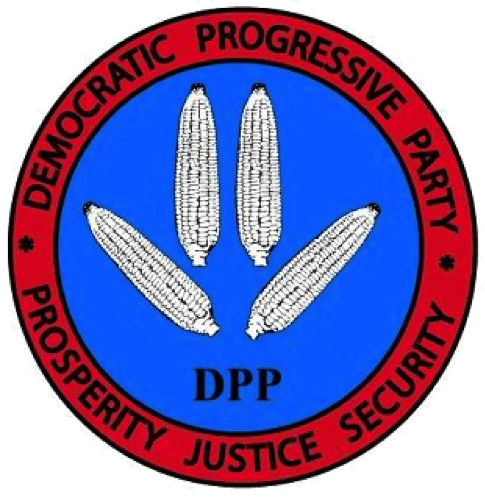
The DPP rose to power as a splinter group off the then-ruling United Democratic Front party. Led by President Bingu wa Mutharika (2004-2010), the brother of President Mutharika, the DPP brought multiple corruption charges against the former government.
President Mutharika faced a similar challenge during this 2019 election.
Chilima, former Vice President to Mutharika, formed the United Transformation Movement (UTM), challenging his predecessor on the basis of corruption and mismanagement. Chilima was an outspoken critic of the government, even while in office, and he quit the vice presidency in June to contest the presidency.
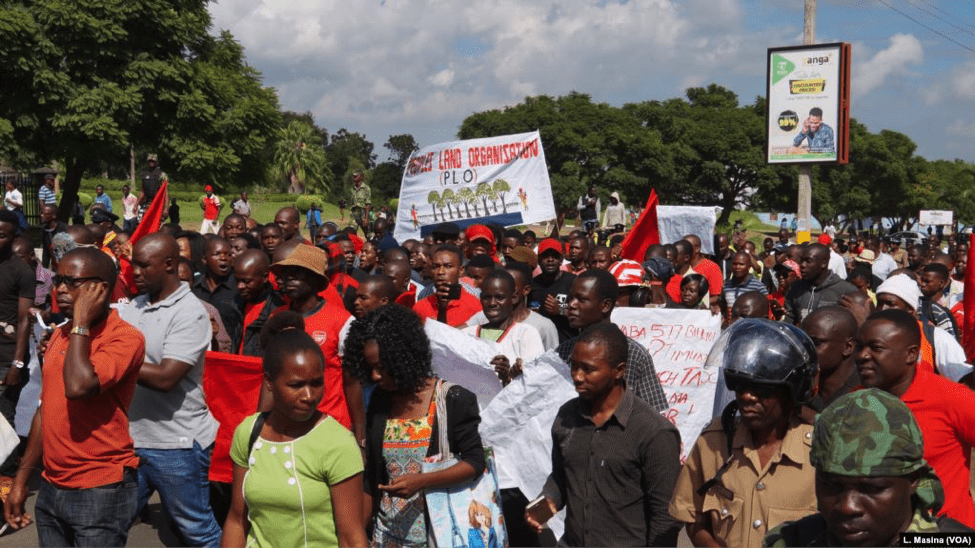
At his inauguration, standing before thousands of cheering supporters, President Mutharika said, “The honeymoon is over. If you belong to the DPP, you have no right to think that you are above the law or to be defiant to your superiors in the name of the party … We want a corrupt-free Malawi where our public resources continue to build roads, community technical colleges and buy drugs for the people.”
Anthony A. LoPresti and Diego Lynch, LIMA CHARLIE WORLD
[Subscribe to our newsletter for free and be the first to get Lima Charlie World updates delivered right to your inbox.]
Lima Charlie World provides global news, featuring insight & analysis by military veterans, intelligence professionals and foreign policy experts Worldwide.
For up-to-date news, please follow us on twitter at @LimaCharlieNews
In case you missed it:

![Africa’s Elections | In Malawi, food, land, corruption dominate [Lima Charlie News]](https://limacharlienews.com/wp-content/uploads/2019/06/Malawi-election-Food-land-corruption.jpg)
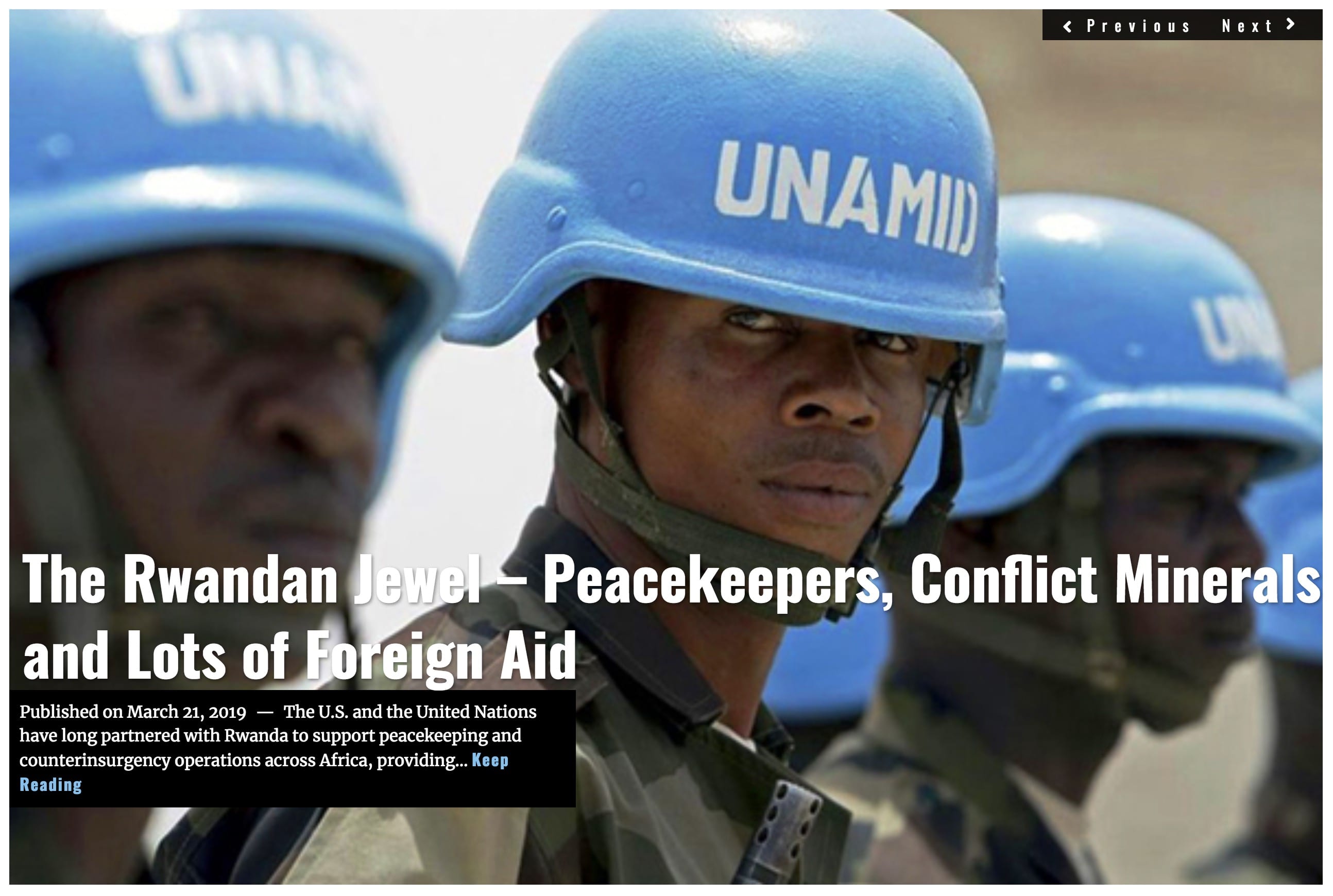

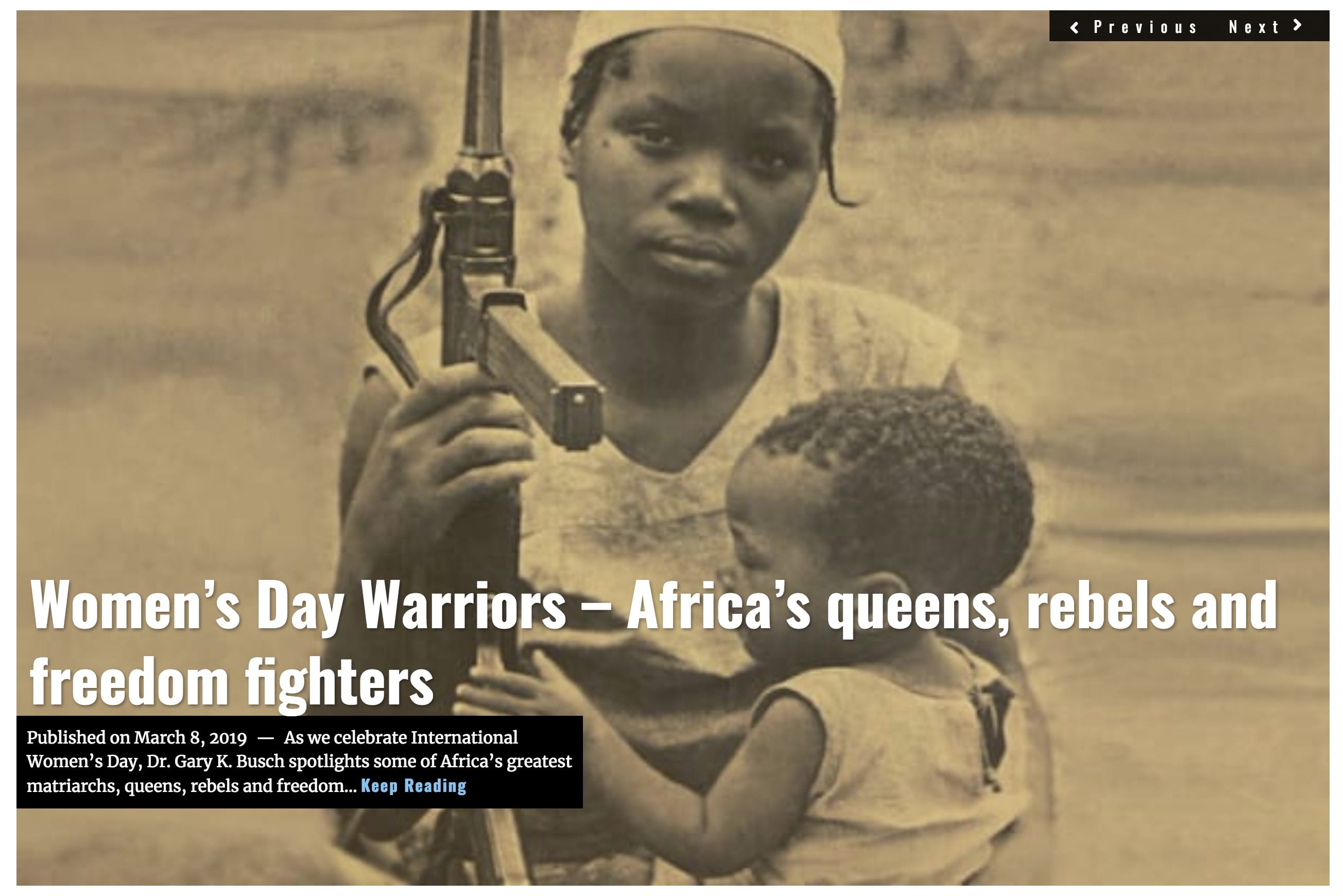
![Image The Rwandan Jewel - Peacekeepers, Conflict Minerals and Lots of Foreign Aid [Lima Charlie World]](https://limacharlienews.com/wp-content/uploads/2019/03/Rwanda-Jewel-480x384.jpg)
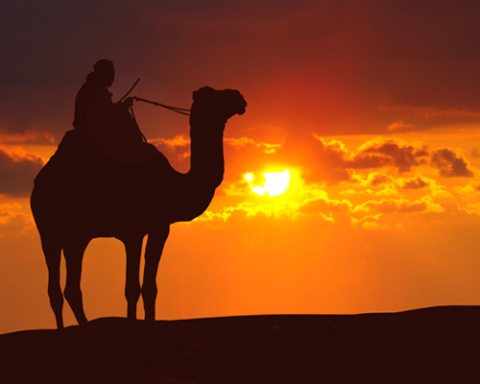
![Image [Women's Day Warriors - Africa's queens, rebels and freedom fighters][Lima Charlie News]](https://limacharlienews.com/wp-content/uploads/2019/03/Womens-Day-Warriors-Lima-Charlie-News-480x384.jpg)
![Image Zimbabwe’s Election - Is there a path ahead? [Lima Charlie News]](https://limacharlienews.com/wp-content/uploads/2018/09/Zimbabwe’s-Election-Is-there-a-path-ahead-Lima-Charlie-News-480x384.png)
![[Silver lining for China in Zimbabwe’s violent elections][Lima Charlie News]](https://limacharlienews.com/wp-content/uploads/2018/08/Screen-Shot-2018-08-02-at-12.51.35-PM-480x384.png)
![Image Mali's election - West Africa hangs in the balance over a peace that never was [Lima Charlie News][Photo: Baba Ahmed / AP]](https://limacharlienews.com/wp-content/uploads/2018/07/Malis-election-West-Africa-hangs-in-the-balance-over-a-peace-that-never-was-480x384.png)
![Image The Rwandan Jewel - Peacekeepers, Conflict Minerals and Lots of Foreign Aid [Lima Charlie World]](https://limacharlienews.com/wp-content/uploads/2019/03/Rwanda-Jewel-150x100.jpg)
